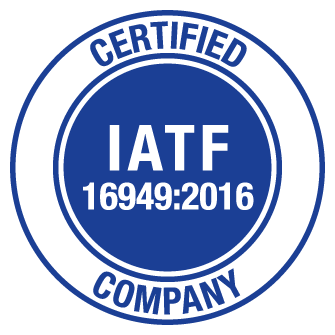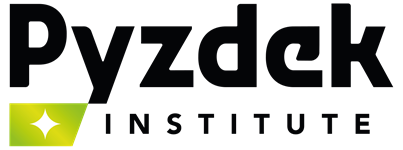In the ever-evolving landscape of automotive manufacturing, the quest for excellence is a constant. Quality assurance, accuracy, precision, and adherence to US and international standards are not mere objectives; they are necessities. In this realm, IATF 16949:2016 stands as the beacon of automotive quality standards. Born from a collaboration of the world’s leading automotive manufacturers and organizations, it represents the apex of quality control in the industry. Meeting its rigorous requirements is no small feat, and many components come into play to achieve this benchmark. Among them, Measurement Systems Management (MSM) stands out, acting as the linchpin ensuring that every measurement, every piece of data, and every analysis aligns with the exacting standards of IATF 16949 and the AIAG Core Tools book MSA-4.
Introducing the Pyzdek Institute’s Measurement Systems Management (MSM)
Before diving into the intricate relationship between IATF 16949 and MSM, it’s essential to introduce the unique approach of the Pyzdek Institute’s Measurement Systems Management method. The Pyzdek Institute champions MSM, an advanced methodology designed to ensure the precision and consistency of measurement data in manufacturing environments. This system goes beyond merely checking the reliability of measuring instruments. Instead, the Institute’s MSM holistically encompasses the entire measurement ecosystem, from the tools and techniques employed to the processes and protocols in place. In an industry where even the slightest deviation can have monumental implications, the Pyzdek Institute’s MSM offers an enhanced layer of assurance, ensuring that measurements are not just accurate but consistently so.
Understanding IATF 16949 and Its Quality Imperatives

The IATF 16949:2016 standard, often simply referred to as IATF 16949, is an evolution of the previously recognized ISO/TS 16949. Developed by the International Automotive Task Force (IATF) in collaboration with the International Organization for Standardization (ISO), it was created to harmonize and streamline quality management processes across the global automotive supply chain.
Several driving factors make this standard unique and crucial for the automotive industry:
- Customer-focused approach: At the heart of IATF 16949 is a dedication to continual improvement and statistical thinking, emphasizing defect prevention and the reduction of variation and waste in the supply chain. This ensures products and services consistently meet customer needs, cementing trust and increasing reliability.
- Integration with other standards: While it’s an independent standard, IATF 16949 is intended to be used alongside other key ISO standards, particularly ISO 9001. This integration ensures a comprehensive approach to quality management, touching all aspects of production and service delivery.
- Risk Management: With its forward-looking approach, the standard actively promotes risk-based thinking, early problem detection, and mitigation. This is vital in an industry where recalls or defects can have significant safety implications and reputational costs.
- Employee Competency: Recognizing that the quality of a product is often a direct reflection of the people producing it, the standard emphasizes the need for ongoing training, skills development, and competency verification of all employees involved in the production process.
At its core, IATF 16949 underscores accuracy and precision in measurement—a domain where MSM excels. A company achieving IATF 16949 certification is sending a clear message: they are committed to achieving the highest levels of quality, efficiency, and customer satisfaction. Given the high stakes of the automotive world, where the margin for error is minimal and the demand for excellence is paramount, adhering to such a standard becomes not just beneficial but essential.
Why MSM is a Game-Changer for IATF 16949 Compliance
For any company aspiring to comply with IATF 16949, ensuring the integrity of measurement data isn’t merely an option—it’s an imperative. The standard emphasizes the precision and accuracy of measurements because even slight deviations can result in significant repercussions in the automotive world. Here’s where Measurement Systems Management (MSM) shines:
- Systematic Approach: Unlike more traditional methods, MSM isn’t about sporadic checks or periodic evaluations. MSM operates on a clear 3-step error-proofed approach:
- Work – Implementing the measurement process.
- Evaluate – Assessing the results for consistency and reliability.
- Decide – Making informed decisions based on the evaluation.
- Broader than GR&R: While the AIAG Gage Repeatability and Reproducibility is important to understand measurement system noise, it’s just one piece of the measurement systems puzzle. MSM encompasses a more comprehensive set of tools (like the vaunted Gage Performance Curve) and strategies, designed to error-proof the entire measurement workflow from new instrument qualification to long-term monitoring of instrument performance. This breadth allows companies to confidently assert the reliability of their data.
- Versatility Across Inspection Processes: Automotive components and systems can have varied inspection requirements, from defect counts to pass/fail decisions or other discrete results. MSM’s methodologies are not only adept at evaluating these varied inspection processes but also ensuring they remain consistent and reliable over time. This versatility reduces the risk of erroneous assessments, which can be costly in both financial and reputational terms.
In essence, MSM provides the depth, breadth, and versatility needed by automotive companies to meet the rigorous demands of IATF 16949. It’s not just about getting measurements right; it’s about ensuring they remain right consistently and reliably, a requirement that MSM is purpose-built to fulfill.
Seamless Integration of MSM with IATF 16949 Audits
Audits are rigorous processes, aimed to ascertain that an organization’s practices conform to industry standards. Within the context of the automotive sector, where safety, efficiency, and precision are paramount, IATF 16949 audits place a particular emphasis on the reliability and accuracy of measurement data.
For IATF 16949 audit success, the value of the Pyzdek Institute’s unique Measurement Systems Management (MSM) approach is substantial:
- Structured Workflow: MSM’s clear 3-step approach of Work, Evaluate, and Decide offers a systematic, continuous framework that auditors can easily follow and validate. Having such a well-documented, consistent approach proves beneficial when addressing auditor inquiries about a company’s measurement processes.
- Qualification and Maintenance: MSM’s depth extends beyond merely achieving measurement accuracy and precision. It emphasizes sustainability of measurement system performance over prolonged periods. By integrating standard operating procedures, routine checks, and maintenance steps within its methodology, MSM aligns seamlessly with the requirements of IATF 16949. This harmonization ensures that auditors can be presented with evidence showcasing not just the initial qualification of the measurement system but its enduring effectiveness.
- Elevated Audit Preparedness: The comprehensive nature of MSM equips organizations to tackle the intricate queries posed during IATF 16949 audits. With MSM in place, companies find themselves better poised to answer auditor questions, reducing the complexities often associated with the audit process.
By embracing MSM, organizations not only ensure alignment with IATF 16949 standards but also pave the way for a smoother, more efficient audit experience. The methodology stands as a testament to an organization’s commitment to maintaining the highest levels of measurement reliability and integrity within the automotive industry.
The Pyzdek Institute’s MSM Training: Bridging the Gap to IATF 16949’s Standards
To master the intricate nuances of Measurement Systems Management and ensure alignment with IATF 16949, there’s no better choice than the specialized training provided by the Pyzdek Institute. As the premier institute offering unique MSM training, the Pyzdek Institute stands apart in its commitment to quality, excellence, and real-world implementation.
Professionals in the automotive sector and related fields can’t afford to settle for generic training. The Pyzdek Institute’s MSM training delves deeper, providing more than just insights into compliance. It equips participants with actionable tools, strategies, and industry-specific knowledge to not only meet but exceed the rigorous quality assurance standards set by IATF 16949. In doing so, organizations are poised to enhance operational efficiency, achieve impeccable quality standards, and realize heightened corporate profitability.
For those serious about making a mark in the automotive domain, the Pyzdek Institute’s MSM training is an invaluable asset.
Conclusion
In the automotive industry, where precision is paramount, tools such as the Pyzdek Institute’s Measurement Systems Management (MSM) prove indispensable. As the landscape continues to evolve, understanding and implementing robust methodologies like MSM can ensure that organizations remain agile, efficient, and always at the forefront of quality standards.


Leave a Reply